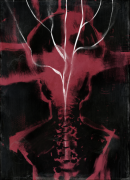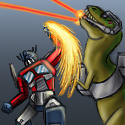|
Jerry Cotton posted:I don't give a heck if a TV series is true to a book or not, and actually prefer if they aren't because, you know, I've already read the darn book haven't I? Sometimes you want to see your imagination on the screen.
|
|
|
|

|
| # ? May 29, 2024 19:56 |
|
Jedit posted:Sometimes you want to see your imagination on the screen. I don't think I've ever felt that way but OK I guess  There are some books I've read where I've thought "this should've been a movie instead because this guy can't write but the plot is great". Doesn't apply to Pratchett though.
|
|
|
|
There does come a point with quite a lot of adaptations where I end up going "yeah, okay, why do you have to call it [Thing That Was Good] if you're going to change it so radically, can you not just call it something else and then say in the press you started from [Thing That Was Good] and then went a different way with it".
|
|
|
Trin Tragula posted:There does come a point with quite a lot of adaptations where I end up going "yeah, okay, why do you have to call it [Thing That Was Good] if you're going to change it so radically, can you not just call it something else and then say in the press you started from [Thing That Was Good] and then went a different way with it". That does happen a lot though. Robocop for example started out as a Judge Dredd movie.
|
|
|
|
|
Dr Strangelove was originally going to be an adaptation of a straight thriller novel called Red Alert.
|
|
|
|
The Night Watch series was originally called Doki Doki Panic. That's why Detritus keeps throwing turnips at people.
|
|
|
|
and doki doki panic was intended to be a docudrama about the life of rembrandt.
|
|
|
|
Fun fact: Rembrandt’s The Night Watch was actually fanart for the well-known pamphlet Crymes and Investigationes: Amsterdamme. Anyway the casting seems fine to me, what matters is how it feels and whether it conveys the two essential threads of Pratchett: (1) humour; and (2) a gentle, optimistic humanism. If it nails those it will be good.
|
|
|
|
Beefeater1980 posted:Fun fact: Rembrandt’s The Night Watch was actually fanart for the well-known pamphlet Crymes and Investigationes: Amsterdamme. An actual fun fact: The Night Watch is not named the Night Watch at all, it was originally much brighter but was covered in dark varnish. The real title of the painting is The Shooting Company of Frans Banning Cocq and Willem van Ruytenburch and was the kind of painting people paid for to make them look more badass than they really were.
|
|
|
|
|
Alhazred posted:An actual fun fact: The Night Watch is not named the Night Watch at all, it was originally much brighter but was covered in dark varnish. The real title of the painting is The Shooting Company of Frans Banning Cocq and Willem van Ruytenburch and was the kind of painting people paid for to make them look more badass than they really were. All I know is, one of the two main dudes looks really short. Is it Frans or Willem...?
|
|
|
|
Beefeater1980 posted:Fun fact: Rembrandt’s The Night Watch was actually fanart for the well-known pamphlet Crymes and Investigationes: Amsterdamme. And the whole thing's on Youtube!  https://www.youtube.com/watch?v=XpP7O17ekZI
|
|
|
|
With nothing else going on, it's time for the first in what might be an occasional series of Really Good Posts From Usenet. There were Terry Pratchett fans on Usenet for just about as long as he was writing books (and for several years there was Terry Pratchett himself, enthusiastically participating), and in the 90s and early 00s, there was some seriously sharp discussion and analysis flying round. It's where something I've posted in here before came from, a brilliant analysis of what the hell Lord Vetinari is actually playing at in Jingo. Last time I brought it up, someone asked if there was any more of this sort of thing, so let's see if we can spark some discussion while we haven't got anything else to talk about. ========================= Subject: [R] Fog and FoC Date: 16 Dec 2000 From: Miq Chronology: Feet of Clay was released four years previously, the most recent book is The Truth, and next year we get Thief of Time/The Last Hero/The Amazing Maurice. Oh yeah, and this was posted almost exactly 19 years ago... I just re-read "Feet of Clay", for the umpth time... quote:Fog everywhere. Fog up the river, where it flows among the green aits and meadows; fog down the river, where it rolls defiled among the tiers of shipping, and the waterside pollutions of a great (and dirty) city. Fog on the Circle Sea, fog on the Sto Plains. Fog creeping into the cabooses of collier-brigs; fog lying out on the harbour, and hovering in the rigging of great ships; fog drooping on the gunwales of barges and small boats. Fog in the eyes and throats of ancient marine pensioners, wheezing by the firesides of their wards; fog in the stem and bowl of the afternoon pipe of the wrathful skipper, down in his close cabin; fog cruelly pinching the toes and fingers of his shivering little 'prentice boy on deck. Chance people on the bridges peeping over the parapets into a nether sky of fog, with fog all round them, as if they were up in a balloon, and hanging in the misty clouds. This is, as you know, not how 'Feet of Clay' begins. But considering that the fog does not seem to play a terribly important part in the story, the number of mentions it gets is truly astonishing. From spring mist to dense autumn smog, Ankh-Morpork spends almost the entire book wreathed in dense cloud - and, as in 'Moving Pictures', it changes everything - making the familiar strange, hiding what should be in plain view. Our first sight of Sam Vimes catches him shaving, using a mirror. The weather is clear - clear enough for an assassin to take a shot at him through the window, and clear enough for Vimes to see it coming and dodge. The shot shatters both the window and the mirror - and from this moment, Vimes is lost. "Looks like the fog's rising again," Carrot remarks to the bakery thieves later that morning - and it permeates the rest of the book. Fog is strange stuff. It obscures vision without reducing light. You can look out and see broad daylight, yet find you can't see the far side of the street. Light seems to make it clearer: quote:Tendrils of fog slipped in around the shutters and brushed against the wall until they were frightened away by the candlelight. ... but as any experienced driver knows, this effect is often illusory. Like headlamps in fog, this candlelight is treacherous. More than this, it muffles sound and destroys one's sense of direction. Vimes has learned to navigate the city not by sight, but by the feel of the cobbles through his boots. It makes the familiar seem strange, and allows the strange to pass unnoticed - the golem eludes Vimes on the Brass Bridge while remaining in plain view, simply by using the fog to disguise itself. In much the same way, Dragon shows Vimes the key to the plot, in the form of Arthur Carry's punning coat of arms, but relies on the fog of heraldry to prevent him from seeing it. But perhaps the most important effect of fog is psychological. When Vimes pursues the golem across the bridge, quote:... he felt automatically for his bell, which would summon other Watchmen, but the Commander of the Watch didn't carry a bell. Commanders of the Watch were on their own. In the fog, everyone is alone. Vimes' isolation, in this most introspective of books, is figurative as well as literal. At first he keeps Carrot away from the investigation (to protect him from any possible connection with the crime); this leaves him with only the likes of Colon and Detritus to confide in. The one time we see Sybil in this book, she's asleep; and at the end of the book, when Sam wakes up and sets off to arrest Dragon, he leaves the trusted Detritus and Carrot sleeping, taking instead the completely unknown quantity of Dorfl. Similarly, Vetinari refuses to confide in anyone, even the faithful Drumknott. Cheery, already isolated from her fellow alchemists, chooses further to distance herself from other dwarfs. Even Colon, pricked by pride, finds himself detectoring on his own. Meshugah is unique: alone among golems, he is expected to think for himself, and this enforced isolation - in contrast to the voluntary states of the heroes - drives him mad, until he runs off into the fog and screams in the night. Nobby finds himself unexpectedly cut off from his world and catapulted into High Society - where he finds himself being used, like the yudasgoat, as a sort of animate fog, to cover someone else's intentions. Isolation is a testing experience, for all of them. Meshugah blames the humans who helped to create him, and kills them - arguably, a perfectly rational reaction, from a being that is compelled to 'CREATE JUSTICE FOR ALL' and 'LEAD US TO FREEDOM'. Dorfl, by contrast, accepts his own responsibility - all his fellow conspirators having destroyed themselves: quote:There were no Words between you and It. You belonged to It, It belonged to you. You couldn't turn your back on It because there It was in front of you. But the isolation, like everything else associated with the fog, is an illusion. Other people are still out there, whether you can see them or not. Even alone, you are still (as John Donne put it) part of Humanity; what any human being does reflects on you, because like it or not, You are one of Them - and if They are capable of a particular crime, that means that You are, too. The golems feel this more acutely than most of us: they share the shame of Meshugah's crimes, and Dorfl shares the pain of his fellow conspirators as they destroy themselves. This is one reason why the characters go out of their way to distance themselves from others; humans, dwarfs, undead, golems, guild members, High Society - all identify themselves by excluding the others. So a dwarf identifies herself as innately morally superior to a werewolf, and a werewolf thinks of a golem in the same terms. At the end of the book, Dorfl talks about his plan to lead his people out of bondage: 'No One Else To Do It For Us. We Will Do It By Ourselves.' Paradoxically, he takes it for granted that the others, once free, will choose to follow his example and join him in his crusade. Like Cheery, and Visit, he hopes to end his isolation not by changing himself, but by making others more like him. Compare these characters with the behaviour of Carrot and Angua. Angua has her secrets - from Cheery (that she's a werewolf), and even from Carrot (that she's planning to leave him). She feels the need for isolation, and only right at the end does she begin to think that it's possible to have a little personal space, even with Carrot. In a book where, one by one, everyone's secrets are uncovered, Carrot alone remains as enigmatic as ever. This is the book, I think, where I first started to wonder about his true motivations: there are tiny quirks in his behaviour that don't seem right. Why did he take Vimes to the Dwarf Bread Museum before taking Angua? Why does he disobey Vimes' very explicit order not to go into the factory until support arrives? Why is he so understanding of everyone, even golems, yet fails completely to understand the feelings of those characters who are theoretically closest to him (Angua, Cheery, Vimes)? Speculation: maybe Carrot's abrupt removal from dwarf society, at a very young age (16 is young even by human standards - in dwarf terms, he must have been little more than a babe in arms) means that he has never developed the capacity for empathy. He doesn't exclude anything, because it would never occur to him to identify with anyone except himself. Dwarfs, humans, trolls, golems, werewolves - all are the same to him, because it never occurs to him that he is one of them at all. ========================= I for one will just absolutely never get bored of pondering exactly what the hell is going on in Carrot's head.
|
|
|
|
Trin Tragula posted:I for one will just absolutely never get bored of pondering exactly what the hell is going on in Carrot's head. Men at Arms posted:Carrot often struck people as simple. He was simple. The mistake people made was thinking 'simple' meant the same thing as 'stupid'.
|
|
|
|
I though "Carrot is a sociopath that slowly learns and decides to be less of a sociopath" was a established opinion.a lot of the things he does (like dutifully writing letters to his family back in the mine) are things that he thinks is expected of a good, simple The real trick with carrot the character is that in most literature/media you want/expect to see that kind of person let loose an be evil. But with carrot, the reader wonders, but never wants to see it, not really. That's good writing. man, this guy pratchett was kinda good.
|
|
|
|
Antifa Poltergeist posted:I though "Carrot is a sociopath that slowly learns and decides to be less of a sociopath" was a established opinion.a lot of the things he does (like dutifully writing letters to his family back in the mine) are things that he thinks is expected of a good, simple No, Carrot is the archetypal innocent abroad. You're sort of right that he does a lot of things at the start because that's what he should do, but he isn't thinking about what he should do, he believes that he should do them.
|
|
|
|
I thought of him having and idealistic view on life and his divine powers as a king bends people around him to his whim.
|
|
|
|
Carrot doesn't have any divine powers, he's just that nice.
|
|
|
|
Appearing nice is one of the powers given to you by having the divine right of kings. People tend to ignore the facts in such cases
|
|
|
|
I don't know, kings aren't known for being accurate or precise.
|
|
|
|
carrot for sure has magical charisma, the books call it out several times. that a king was in the city, fully realizing his claim and still choosing the life of a humble civil servant was always the point. carrot has all the abilities and characteristics of fantasy monarchs - he's brave, selfless, heroic, powerful, his rhetoric and nature can turn people to his side, his infinite sense of noblesse oblige that means he cares about literally every creature in anhk morpork to the point he learns everyone's names. devotion to the law, strong sense of justice, love of tradition, etc etc. carrot is the ideal of a fantasy king - the inversion is he's lacking all the characteristics of actual kings - ambition, ruthlessness, greed, a superiority complex, incompetence, predilection to violence, etc. because of this the fantasy king can see that there shouldn't be kings and as such leave the business of running the city to people who are good at it. he only uses his unwanted power for emergencies and to act as a check on legitimate authority.
|
|
|
|
CoolCab posted:carrot is the ideal of a fantasy king - the inversion is he's lacking all the characteristics of actual kings - ambition, ruthlessness, greed, a superiority complex, incompetence, predilection to violence, etc. because of this the fantasy king can see that there shouldn't be kings and as such leave the business of running the city to people who are good at it. he only uses his unwanted power for emergencies and to act as a check on legitimate authority. the bit at the end of Fifth Elephant where he's doing the drill sergeant at Colon.
|
|
|
|
Carrot straight up kills Cruces, not very subtly reminds Vetinari that a king could come back if he felt current city leadership wasn't handling things correctly, makes Vimes a Duke and threatens Nobby and Colon with a sword while reminding them they swore an oath to the king. Carrot is a lot of things.
|
|
|
|
|
Multidimensional characters are yay.
|
|
|
|
CoolCab posted:carrot for sure has magical charisma, the books call it out several times. Ands that's exactly why he is one of the least interesting characters Prachett ever came up with.
|
|
|
|
The thing is that if Carrot really is all those things, then he’s almost astoundingly lacking in emotional honesty.
|
|
|
|
Rand Brittain posted:The thing is that if Carrot really is all those things, then he’s almost astoundingly lacking in emotional honesty. Well, yeah.hes a sociopath. And sure carrot doesn't get developed much because it stops being interesting exploring him further.hes a foundation, more than anything.i think, especially in the later books, he's more the bedrock of the Watch than Vimes is.that doesnt mean he is a boring character, only that his story is less narratively interesting. Angua too, especially after the fifth elephant.knowing when to be done with your characters is a very hard thing to master, but Pratchett always found that balance for the characters with better stories,with maybe the exception of rincewind.
|
|
|
|
CoolCab posted:carrot for sure has magical charisma, the books call it out several times. Mr. Vimes put words in his head.
|
|
|
|
Fighting Trousers posted:Mr. Vimes put words in his head. WELL DONE
|
|
|
|
There are two Carrots imo. The first, the naive one just entering the city and starting to learn EVERYTHING about everyone and such. He has truly honest straight faced honesty here. Then there is the second, the one that knows he is the TRUE KING to rule and serve them all. But doesn't want to rule, he just wants to serve, and so intentionally uses his straight faced innocence to deflect and get what he wants. Probably the second best diplomat in the city, after Vetinari.
|
|
|
|
happyhippy posted:There are two Carrots imo. Ah yes the Bigger Carrot theory 
|
|
|
|
In Ankh-Morpork, you get the Carrot, or you get the ol' stick in the mud.
|
|
|
|
happyhippy posted:There are two Carrots imo. It's interesting to contrast Carrot, Vimes, and Vetinari as leaders. Carrot is The Chosen One, but chooses to serve rather than lead. Vimes is a tortured idealist who is in charge solely because nobody else will do it Right. Vetinari chooses to play the role of the biggest threat in order to make everyone else work together against him. It's one of the reasons he gets along with Ridcully, as they're both doing the same thing, the Archchancellor's just going for open bullying rather than suggesting sinister plots. Liquid Communism fucked around with this message at 10:51 on Dec 28, 2019 |
|
|
Jerry Cotton posted:Ah yes the Bigger Carrot theory Glorious. Carrot is interesting because he’s a philosopher king who applied his mind to the system and realised it wouldn’t be improved by him being in charge, so he stayed low. In Guards, Guards there is a real tension at the end of the book when Vetinari asks them what they want. It’s still there in Men At Arms. The potential that after all the requests for dartboards etc, Carrott adds “oh, and Supreme Executive Power.” But he never does. I don’t like the mythologising of sociopaths we occasionally see in fiction, and I don’t think Carrot is one. He’s thoughtful and empathetic, but he has a very strong moral code and he acts in accordance with it, and part of having a very strong moral code is letting it overrule concepts like “good guys don’t kill bad guys.” As Cruces found out.
|
|
|
|
|
Terry was very much not a pacifist and that shows in his works. Thou shalt not kill takes a fuckin beating, but his characters are very careful to kill only when absolutely necessary and with full knowledge that they will have to live with the consequences whatever they may be.
|
|
|
|
Sloth Life posted:Terry was very much not a pacifist and that shows in his works. Thou shalt not kill takes a fuckin beating, but his characters are very careful to kill only when Pratchett was pretty sure most readers would go "yeah that dude deserved it
|
|
|
|
Beefeater1980 posted:Glorious.
|
|
|
|
My personal favorite Carrot bit is in Men at Arms, when he bluffs his way into the Clown guildhouse with the whole "If you refuse to answer my questions, I will be forced to carry out my orders. I do not like that and I will be ashamed of it, but I will do it." thing. He never tells a lie and he never says anything overtly threatening, but you can tell that he absolutely knows what he's doing. It's not just a case of Carrot being oblivious to the implication of his words in that context. He clearly means for his words to be interpreted as a threat.
|
|
|
|
“Have - have you got an appointment?' he said. 'I don't know,' said Carrot. 'Have we got an appointment?' 'I've got an iron ball with spikes on,' Nobby volunteered. 'That's a morningstar, Nobby.' 'Is it?' 'Yes,' said Carrot. 'An appointment is an engagement to see someone, while a morningstar is a large lump of metal used for viciously crushing skulls. It is important not to confuse the two, isn't it, Mr-?' He raised his eyebrows. 'Boffo, sir. But-' 'So if you could perhaps run along and tell Dr Whiteface we're here with an iron ball with spi- What am I saying? I mean, without an appointment to see him? Please? Thank you.” Is one of my favourite exchanges in the whole series.
|
|
|
|
Sloth Life posted:Terry was very much not a pacifist and that shows in his works. Thou shalt not kill takes a fuckin beating, but his characters are very careful to kill only when absolutely necessary and with full knowledge that they will have to live with the consequences whatever they may be. The commandment is not "thou shalt not kill". It's "thou shalt not do murder", a distinction Pterry was always careful to make without reducing it to the Texas Defence.
|
|
|
|

|
| # ? May 29, 2024 19:56 |
|
Khizan posted:My personal favorite Carrot bit is in Men at Arms, when he bluffs his way into the Clown guildhouse with the whole "If you refuse to answer my questions, I will be forced to carry out my orders. I do not like that and I will be ashamed of it, but I will do it." thing. He never tells a lie and he never says anything overtly threatening, but you can tell that he absolutely knows what he's doing. It's not just a case of Carrot being oblivious to the implication of his words in that context. He clearly means for his words to be interpreted as a threat. His orders from Colon were "if he gives you any trouble, you just leave, okay?" so Carrot was just being very honest, as usual. If Whiteface didn't do what Carrot said, Carrot was going to carry out his orders and leave. And he wouldn't like it and he'd be ashamed of it, but he'd do it. I love that bit too. 
|
|
|



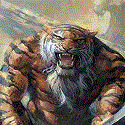


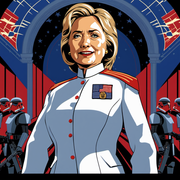









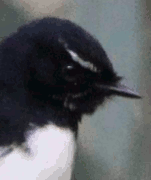

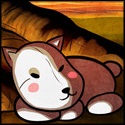
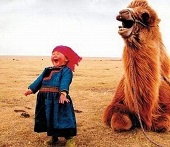



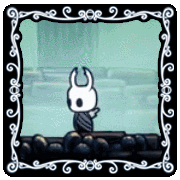


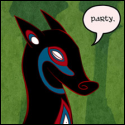
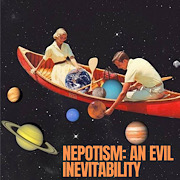
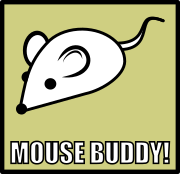


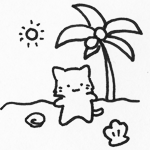
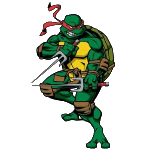

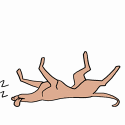


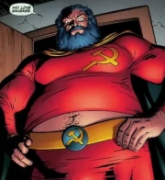
 "
"